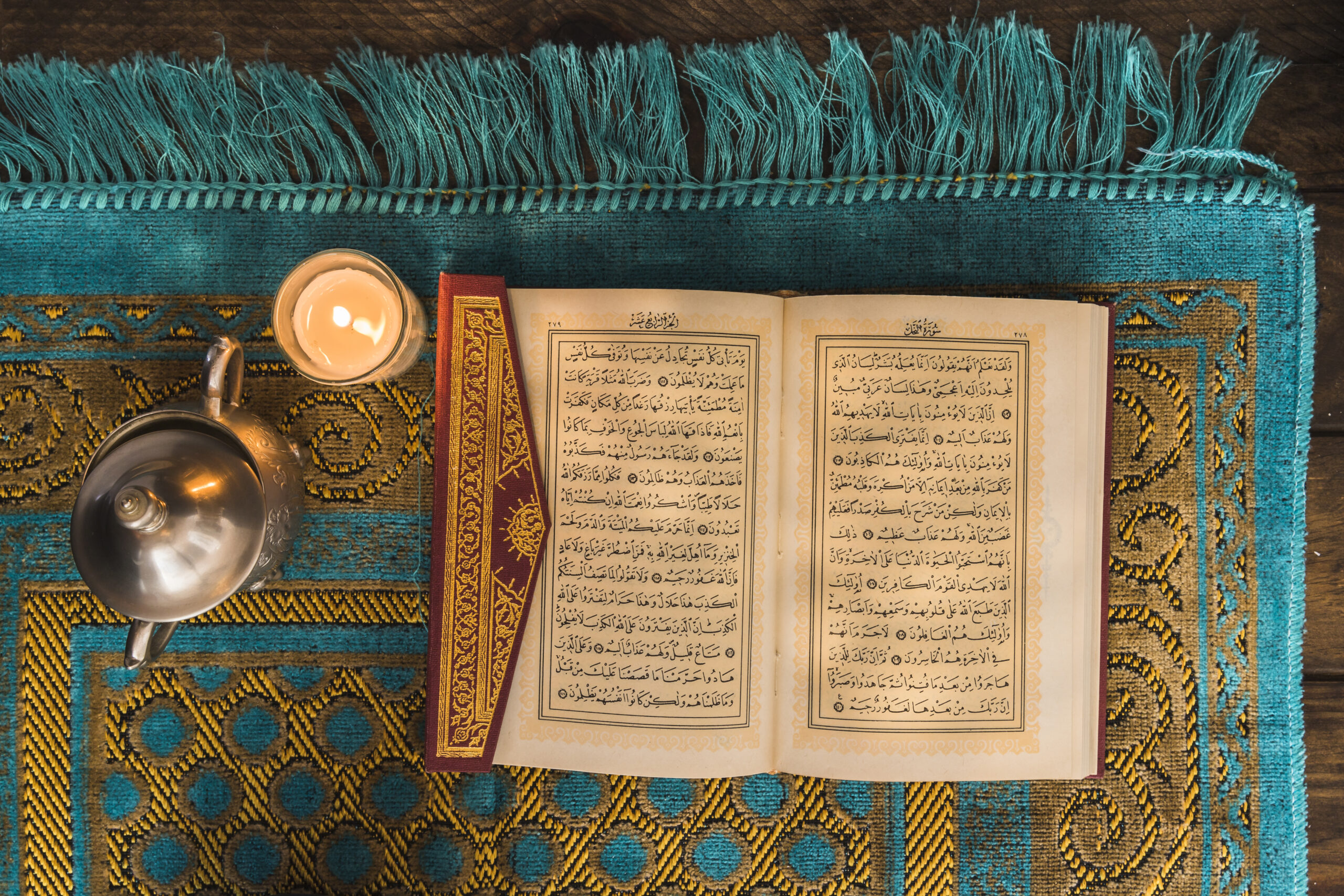Love is one of the most powerful forces in the universe. It has the ability to transform people, bring them together, and heal wounds. In the realm of Islam, love is an omnipresent force that permeates every aspect of life. The Quran and teachings of Prophet Muhammad (peace be upon him) offer a wealth of profound Islam quotes on love, shedding light on its power to transform hearts and societies.
In this enlightening article, we embark on a journey to discover the beauty and significance of love in Islam. Through a collection of carefully selected quotes, we delve into the depths of affection, compassion, and kindness that define this divine religion.
From verses that highlight the unconditional love of Allah to teachings that emphasize the importance of love for humanity, we explore the diverse manifestations of love within the Islamic tradition.
Whether you are seeking spiritual enlightenment or a deeper understanding of Islamic teachings, this exploration of love in Islam is sure to leave you inspired and moved.
Join us as we unveil the timeless wisdom and embrace the power of love in Islam.
Understanding the Concept of Love in Islam
Love in Islam is a multidimensional concept that encompasses love for Allah, love for His Messenger, love for oneself, love for one’s family, love for humanity, and love for creation. For Muslims, love is not just a feeling or an emotion but a state of being and a way of life. Love is an expression of faith and a means of achieving spiritual proximity to Allah. It is a force that inspires devotion, compassion, and kindness towards all of Allah’s creation.
When it comes to love for Allah, Muslims believe that it is the most important form of love. This love is expressed through various devotional practices such as prayer, fasting, and charity. Muslims believe that by performing these acts of worship, they can strengthen their love for Allah and draw closer to Him. Love for Allah is not just about performing these acts, but also about doing them with sincerity and devotion.
Love for Prophet Muhammad (PBUH) is also an essential aspect of Islam. Muslims believe that love for the Prophet is a requirement for attaining true faith. This love is expressed through various practices such as sending blessings upon him, studying his life and teachings, and following his example. Muslims see the Prophet as a role model and strive to emulate his character and behavior in their daily lives.
The Importance of Love in Islamic Teachings
Islam places great emphasis on the importance of love as a cornerstone of human behavior and interpersonal relationships. The Prophet Muhammad (PBUH) once said,
“None of you truly believes until he loves for his brother what he loves for himself.”
This statement underscores the significance of love in building strong and healthy relationships amongst believers. In Islam, love is not superficial; it requires action and sacrifice for the sake of others.
Love for oneself is also an important aspect of Islam. Muslims believe that taking care of oneself is a form of worship and a means of fulfilling one’s responsibilities towards Allah.
This includes taking care of one’s physical, emotional, and mental well-being. By loving oneself, Muslims can better serve Allah and others.
Love for one’s family is also emphasized in Islam. Muslims believe that the family is the foundation of society and that a strong family unit is essential for a healthy society.
Love for one’s family is expressed through various acts of kindness, compassion, and support. Muslims are encouraged to maintain strong ties with their family members and to treat them with respect and kindness.
Love for humanity is another important aspect of Islam. Muslims believe that all human beings are equal in the eyes of Allah and that they should be treated with kindness and compassion. Muslims are encouraged to help those in need, to be charitable, and to work towards creating a just and equitable society.
Finally, love for creation is also emphasized in Islam. Muslims believe that Allah has created everything in the universe and that it is their responsibility to take care of the environment and to be good stewards of the earth. Love for creation is expressed through various environmental initiatives and practices such as conservation, recycling, and reducing waste.
Different Types of Love in Islam
In Islam, there are different types of love that play a significant role in shaping how Muslims understand and experience love. One of the most important forms of love is the love for Allah, which encompasses devotional practices such as prayer, fasting, and charity. Another essential aspect of love in Islam is the love for Prophet Muhammad (PBUH). Muslims believe that love for the Prophet is a requirement for attaining true faith.
Love for oneself is also an important aspect of Islam. Muslims believe that taking care of oneself is a form of worship and a means of fulfilling one’s responsibilities towards Allah.
This includes taking care of one’s physical, emotional, and mental well-being. By loving oneself, Muslims can better serve Allah and others.
Love for one’s family is also emphasized in Islam. Muslims believe that the family is the foundation of society and that a strong family unit is essential for a healthy society.
Love for one’s family is expressed through various acts of kindness, compassion, and support. Muslims are encouraged to maintain strong ties with their family members and to treat them with respect and kindness.
Love for humanity is another important aspect of Islam. Muslims believe that all human beings are equal in the eyes of Allah and that they should be treated with kindness and compassion. Muslims are encouraged to help those in need, to be charitable, and to work towards creating a just and equitable society.
Finally, love for creation is also emphasized in Islam. Muslims believe that Allah has created everything in the universe and that it is their responsibility to take care of the environment and to be good stewards of the earth. Love for creation is expressed through various environmental initiatives and practices such as conservation, recycling, and reducing waste.

The Role of Love in the Quran
The Quran is not just a book of religious teachings, but a guide for Muslims on how to live a fulfilling and meaningful life. Love is one of the most important themes in the Quran and is often mentioned in relation to the relationship between Allah and His creation.
The Quranic teachings on love emphasize the importance of kindness, compassion, and empathy, and encourage Muslims to cultivate these qualities in their daily lives.
Love is not just an emotion, but a powerful force that can transform individuals and societies. The Quranic verses on love and compassion remind Muslims of their responsibilities towards humanity and encourage them to embrace love as a means of attaining spiritual closeness to Allah.
Love is not just a feeling, but an action that requires effort and commitment. Muslims are encouraged to show love to their families, friends, and communities, and to extend this love to all of Allah’s creation.
Quranic Verses on Love and Compassion
There are numerous Quranic verses that emphasize the importance of love and compassion in Islam. One such verse states,
“And We have sent you not but as a mercy for all the worlds.”
This verse highlights the role of love and compassion in the Prophet’s mission and underscores the importance of treating others with kindness and respect, irrespective of their beliefs or backgrounds.
Another verse reads,
“Verily, Allah is with those who are patient and those who are doers of good.”
This verse highlights the importance of patience and good deeds in cultivating love and compassion towards others. Muslims are encouraged to be patient in the face of adversity and to do good deeds, even when it is difficult.
Love for Allah and His Messenger
Love for Allah and His Messenger is a central theme in Islamic teachings. Muslims believe that love for Allah is a crucial component of faith and serves as a means of attaining nearness to Him. Similarly, love for the Prophet Muhammad (PBUH) is a requirement for attaining true faith. Muslims express their love for the Prophet by sending blessings upon him and following his example in their daily lives.
Love for Allah and His Messenger is not just an abstract concept, but a practical one. Muslims are encouraged to show their love for Allah by obeying His commandments and following the teachings of the Prophet Muhammad (PBUH). Love for the Prophet is expressed through acts of kindness, compassion, and generosity towards others.
In conclusion, the Quranic teachings on love and compassion are a source of inspiration for Muslims seeking to cultivate empathy and kindness towards all of Allah’s creation. Love is not just an emotion, but a powerful force that can transform individuals and societies.
Muslims are encouraged to show love to their families, friends, and communities, and to extend this love to all of Allah’s creation. By doing so, they can attain spiritual closeness to Allah and fulfill their responsibilities towards humanity.
Love in the Hadith
The Hadith, or sayings of the Prophet Muhammad (PBUH), provide a rich source for understanding the role of love in Islamic teachings. The Prophet frequently spoke about love and offered guidance on how to cultivate it in one’s life. His teachings on love emphasize compassion, kindness, forgiveness, and empathy, all of which are essential to building strong relationships amongst believers.
The Significance of Love in the Prophet’s Teachings
The Prophet’s teachings on love emphasize its transformative power and highlight its role in fostering unity and brotherhood amongst believers. One of his most famous sayings is
“The believers in their mutual kindness, compassion, and sympathy are just like one body. When one of the limbs suffers, the whole body responds to it with wakefulness and fever.”
This beautiful metaphor highlights the importance of love in creating a sense of community and shared responsibility amongst believers. When we love one another, we are more likely to care for each other’s needs and work together towards a common goal. This is why love is such an essential component of Islamic teachings.
Examples of Love in the Hadith
The Hadith provides numerous examples of the transformative power of love in the lives of Muslims. One such example is the story of a woman who used to throw trash at the Prophet on his way to the mosque. The Prophet responded to this hostility with kindness and compassion, something that eventually led her to embrace Islam.
This story illustrates the power of love to overcome even the most entrenched hatred and hostility. By responding to the woman’s aggression with kindness and compassion, the Prophet was able to break down the barriers between them and create a space for love to grow. This is a powerful lesson for all of us, as it reminds us that even in the face of adversity, love can be a powerful force for change.
Another example of love in the Hadith is the story of the Prophet’s relationship with his wife Aisha. The two had a deep and abiding love for one another, and their relationship serves as a model for all Muslims to follow. The Prophet treated Aisha with kindness, respect, and affection, and she in turn was a devoted and loving wife to him.
This story highlights the importance of love in our personal relationships, and reminds us that the bonds of love and affection are essential to a happy and fulfilling life. By following the example of the Prophet and his wife, we can cultivate deep and meaningful relationships with those we love, and experience the transformative power of love in our own lives.
Love in Islamic Poetry and Literature
Islamic poetry and literature have long celebrated the power of love as a means of attaining spiritual closeness to Allah. Muslim poets throughout history have used language to evoke the transformative power of love and underscore its role in shaping the human experience. Celebrating love through poetry and literature has been a way for Muslims to express their devotion to Allah and to each other.
Celebrating Love in Sufi Poetry
Sufi poetry has a long tradition of celebrating the transformative power of love. Sufi poets often use language to evoke the transcendent qualities of love and emphasize its ability to transform the human heart. One such Sufi poet, Rumi, wrote,
“Love is the bridge between you and everything.”
This quote highlights the role of love in overcoming human divisions and bringing people together in a spirit of harmony.
Sufi poetry is also known for its use of metaphor to describe the experience of love. For example, the 12th-century Sufi poet Attar wrote a poem called
“The Conference of the Birds,”
in which a group of birds embark on a journey to find their king, the Simurgh. Along the way, the birds encounter various obstacles and challenges, which they must overcome in order to reach their destination. The journey is a metaphor for the spiritual journey of the Sufi seeker, and the Simurgh represents the ultimate goal of spiritual enlightenment.
At the end of the poem, the birds finally reach their destination, only to find that the Simurgh is none other than themselves. The poem uses the metaphor of the birds’ journey to describe the experience of the Sufi seeker’s journey towards spiritual enlightenment, which is ultimately a journey towards self-discovery and self-realization.
Famous Islamic Love Stories
Islamic literature is also rich with stories of love that celebrate the transformative power of love and its ability to bring people together. Perhaps the most famous of these stories is that of the Prophet Muhammad (PBUH) and his wife Khadija, a wealthy businesswoman who was the Prophet’s first wife and his most beloved companion. Their love and respect for each other serve as a model for Muslim couples to this day.
Another famous Islamic love story is that of Layla and Majnun, which dates back to the 7th century. The story tells of a young man named Qays who falls deeply in love with a beautiful girl named Layla. However, their families disapprove of their love and forbid them from seeing each other.
Qays becomes so consumed by his love for Layla that he goes mad and is henceforth known as Majnun, which means “possessed by a jinn.” Despite their separation, Qays/Majnun continues to write poems about his love for Layla, which become famous throughout the Arab world.
Layla eventually dies of a broken heart, and Qays/Majnun dies soon after, having never been able to be with the love of his life. The story of Layla and Majnun has been retold in countless poems, songs, and films, and continues to be a beloved tale of tragic love.
Overall, Islamic poetry and literature celebrate the power of love as a means of attaining spiritual enlightenment and bringing people together. From the Sufi poets who use language to evoke the transcendent qualities of love, to the famous love stories that have captivated audiences for centuries, love has played a central role in Islamic culture and continues to inspire Muslims around the world.
Practical Ways to Cultivate Love in Islam
Love in Islam is not just something to be celebrated; it is something to be practiced and cultivated in everyday life. Muslims seeking to strengthen their relationships with Allah, their families, and their communities can do so by embracing practical ways to cultivate love in their lives.
Strengthening Love in Marriage and Family
Love in the context of marriage and family is a core Islamic value. Muslim couples seeking to strengthen their love for each other can do so by practicing kindness, forgiveness, and empathy towards each other. Similarly, parents can strengthen their love for their children by spending time with them, supporting them, and teaching them the importance of compassion and kindness.
Fostering Love and Unity in the Community
Love in the community is essential to creating a spirit of unity and brotherhood amongst believers. Muslims can foster love in their communities by practicing forgiveness, empathy, and kindness towards one another, volunteering their time to help those in need, and working towards the common good.
The Power of Love in Overcoming Challenges
The transformative power of love is particularly evident in times of adversity and conflict. Love can serve as a source of strength and resilience, inspiring believers to stand up for justice and protect the vulnerable.
Love as a Source of Strength and Resilience
In the face of adversity, love can serve as a source of inner strength and resilience. Muslims who experience hardship can find solace in their love for Allah and draw upon this love to stay steadfast in their faith.
Love in the Face of Adversity and Conflict
Love can also inspire Muslims to stand up for justice and protect the vulnerable in times of conflict. The Prophet Muhammad (PBUH) once said,
“Whoever sees an evil, let him change it with his hand; and if he is not able to do so, then [let him change it] with his tongue; and if he is not able to do so, then with his heart – and that is the weakest of faith.”
This quote highlights the role of love in inspiring Muslim believers to take action against injustice and stand up for what is right.
Conclusion: Embracing Love as a Core Islamic Value
Love is a core Islamic value that lies at the heart of Islamic teachings. From the Quran to the Hadith to Islamic literature, love has been celebrated as a transformative power that has the ability to transform individuals and communities alike. To strengthen their relationships with Allah, their families, and their communities, Muslims must embrace love as a way of life and put its teachings into practice each day.
By doing so, they can cultivate a spirit of unity and brotherhood amongst believers, build strong and healthy relationships with those around them, and play a positive role in shaping the world around them.





